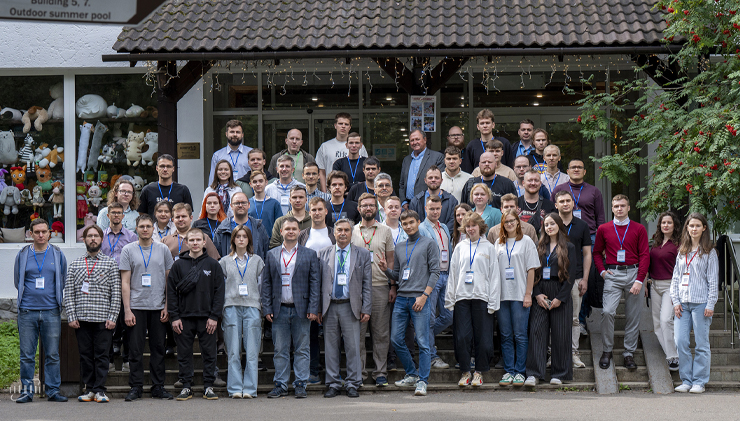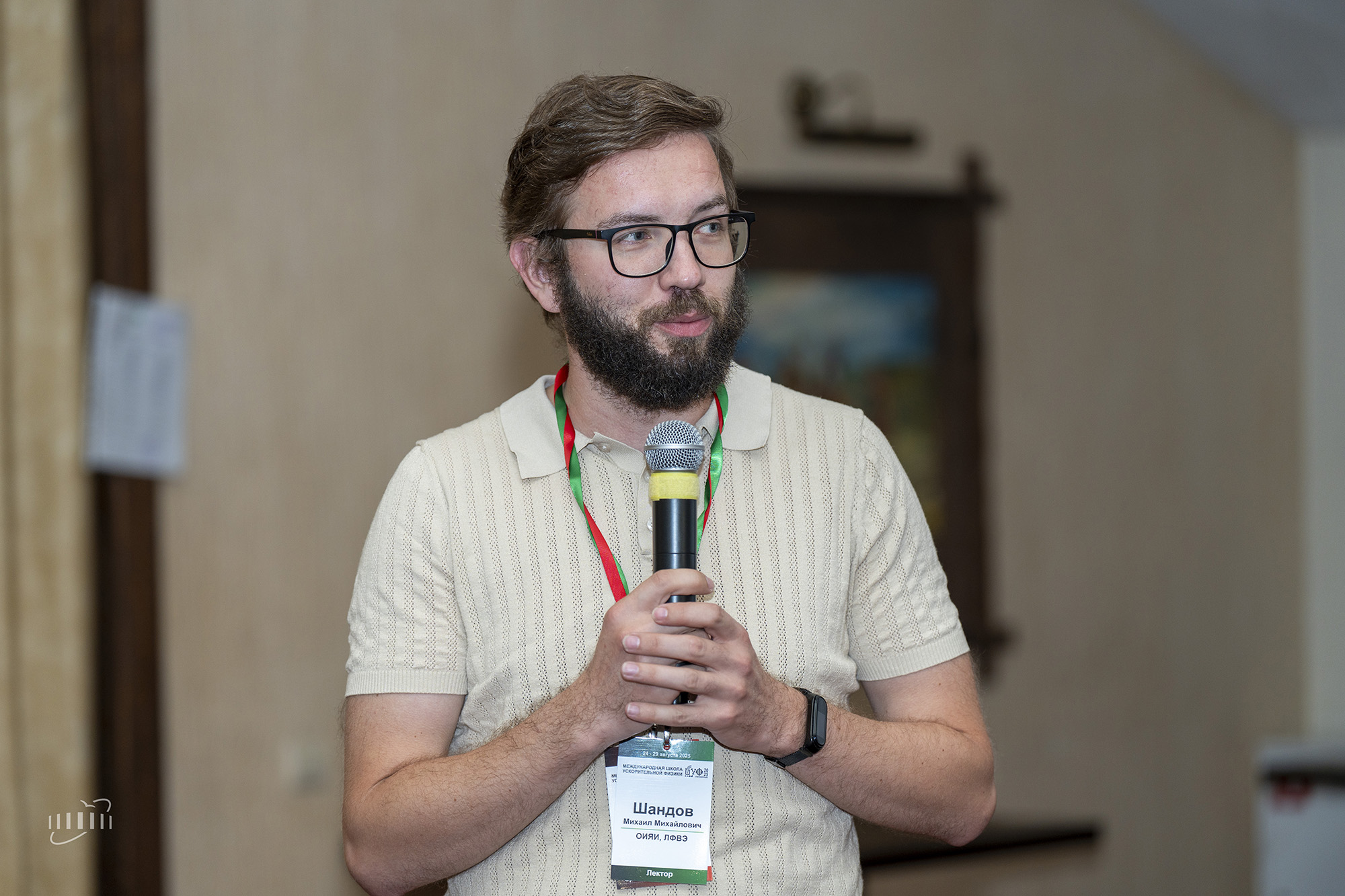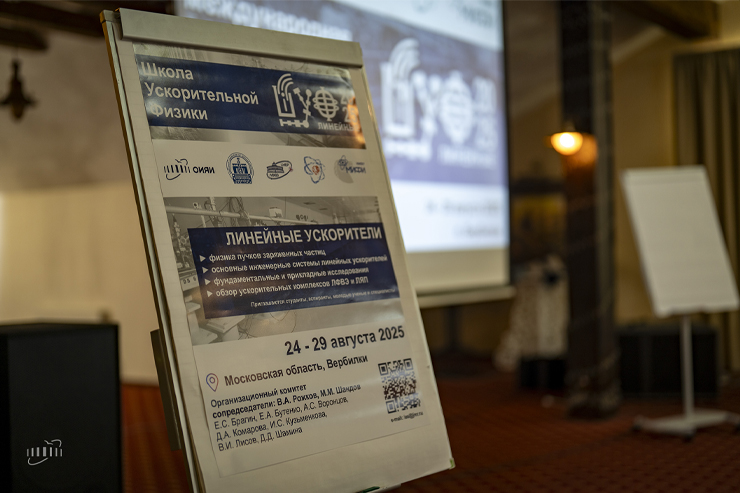JINR linear accelerator school started in Moscow Region
News, 26 August 2025
From 24 to 29 August 2025, the International Accelerator School: Linear Accelerators is taking place in Verbilki Village, Russia. During the week, young scientists and specialists will listen to lectures by leading experts in the physics and technology of charged particle accelerators and apply the acquired knowledge in practical classes and project activities. The event is organized by the Laboratory of High Energy Physics, the Laboratory of Nuclear Problems, and the Association of Young Scientists and Specialists (AYSS) of JINR with the support of the National Research Nuclear University MEPhI.
The main topic of the school was linear accelerators, an important tool for conducting a wide range of research, from fundamental experiments in particle physics to applied problems such as disease diagnosis and treatment, radioisotope production, materials science, agriculture, and much more. Linear accelerators can function both as autonomous research facilities and as injectors within multicomponent accelerator complexes.
In 2025, the school’s programme covers the following areas:
- physics of charged particle beams,
- key engineering systems of linear accelerators,
- fundamental and applied studies,
- JINR facilities: an overview of the VBLHEP and DLNP accelerator complexes.
On 25 August, at the opening ceremony, the IAS-2025 Organizing Committee Co-Chairs – a researcher at the Dzhelepov Laboratory of Nuclear Problems Vladislav Rozhkov and Senior Researcher at the Veksler and Baldin Laboratory of High Energy Physics Budker Institute of Nuclear Physics Shandov – addressed the participants of the school with welcome remarks.
“The development, implementation, and operation of linear accelerators require in-depth knowledge of both the theoretical foundations and practical aspects of the functioning of all systems,” Mikhail Shandov emphasised the significant role of the school in the training of highly qualified specialists. “The IAS-2025 programme covers these key issues, which makes it possible to provide a comprehensive study of the principles of operation, design, and usage of modern accelerator complexes while communicating with lecturers who are leading experts in their areas”.
In addition, as part of the school’s opening ceremony, AYSS JINR Council Chair, a junior researcher at the Laboratory of Radiation Biology Regina Kozhina made a presentation. She spoke about the activities of the Association, along with its role in the research and cultural life of the Institute.
The school’s scientific programme started with a lectures by JINR Chief Engineer Boris Gikal on the history of charged particle accelerators and the accelerators of the Joint Institute. Deputy Head of the VBLHEP JINR Accelerator Department Anatoly Sidorin gave a talk on ion sources of light particles.
“This school is a good, friendly place, and atmospheric place, Anatoly Sidorin shared his impressions. “The lectures and practical exercises presented here will be useful to anyone interested in the physics and technology of modern accelerators”.
In the afternoon, the programme continued with a series of presentations by scientists from JINR and the Budker Institute of Nuclear Physics (BINP). A VBLHEP leading engineer Dmitry Rassadov highlighted the topic of highly charged ion sources. A BINP researcher Danila Nikiforov gave a lecture on the sources of electron and positron beams. Head of a VBLHEP sector Valery Kobets concluded the scientific session with a talk on the history of the development of linear accelerators.
As part of the practical classes of the programme, the school participants were given a task to develop two concepts of an electronic accelerator. Working in groups and using lecture materials, on the final day they will present their accelerator projects designed for basic research at the NICA Complex, and for solving applied scientific problems.
The International Accelerator School gathered more than 50 young scientists and specialists from four JINR laboratories (VBLHEP, DLNP, FLNR, FLNP) and six research centres and universities of the Russian Federation: MEPhI, BINP, Kurchatov Institute, Moscow State University, Saint Petersburg State University, and the Platov South Russian State Polytechnic University.
The current IAS-2025 programme is available on the event’s page in Indico. In addition, everyone interested can watch a live broadcast of all lectures via the MTS-link. The working language of the school is Russian.







